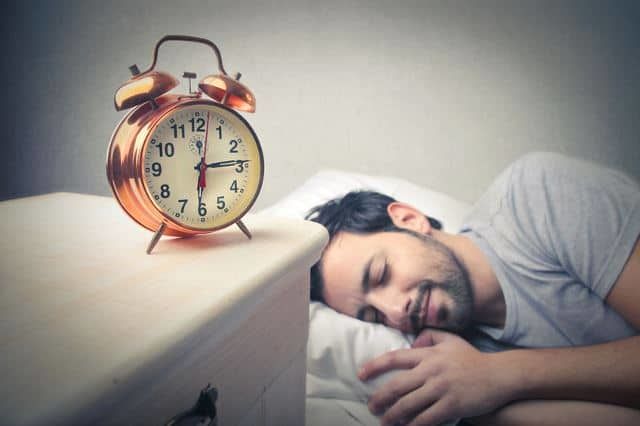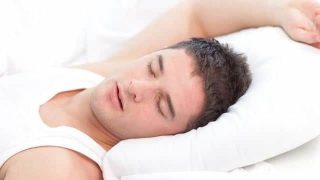Have you ever woken up in the morning feeling groggy and confused, despite the fact that you slept eight full hours? Sometimes, you feel like no matter how long or short your snooze times are, you always have the same difficulty in waking up in the morning. Could there be an explanation for that?
Yes. It’s all because you’re not completing a full cycle by the time your alarm clock rings. It might not make sense to you yet, but it will be by the time you finish reading this article. It turns out that there is such a thing as a sleep cycle calculator, which can determine what your best sleep/wake time is so that you can avoid wanting to throw the alarm clock against the wall when it rings.
What Are Sleep Cycles?
A sleep cycle consists of several sleep stages that every person passes through when they’re at their core sleep during the night. A sleep cycle usually starts off at around 90 minutes, but as it’s repeated, it can increase up to 120 minutes in length. There are four different stages of a sleep cycle:
- Stage 1 is the state of drowsiness. It’s that moment when you feel like you’re about to fall asleep, but you’re just drifting away and not actually sleeping. It’s more like snoozing. In this state, you can easily be woken up by external stimuli, and when you do wake up, you can’t even tell if you were really sleeping or not. This is considered to be the first stage of light sleep. At this point, your eyes will roll slowly while the body and the mind both prepare for the second sleep stage.
- Stage 2 is the first stage of actual sleep, but you are still in the part of the light sleeping stage. Much like the first stage, this phase is also part of the non-REM sleep, but it takes longer than stage 1. In fact, the second stage of sleep account for about 40 to 60 percent of your total sleeping time. In this stage, your brain activity is way more reduced compared to the first stage, and your heart rate begins to slow down. During the second stage, it’s also common for the body temperature to drop.
- Stage 3 is the stage of deep sleep (more on that in the following section). It is the most restorative stage of all your sleep phases, and it’s when the body starts to gain back the energy it lost during the day. It is also believed that this is the phase when your brain starts to assimilate the information you’ve learned throughout the day and turns it from short-term to long-term memory. The third stage of sleep only accounts for about five to 15 percent for your total sleep time, but children and adolescents spend more time in deep sleep compared to adults (many scientists believe this occurs because younger adults learn more information throughout the day compared to adults, and this information needs to be processed and stored). The REM sleep stage is not as deep as stage 3, which makes it easier for you to be woken up by external factors, but is deeper compared to the first stage of sleep.
- Stage 4 is REM sleep. Short for rapid-eye movement, it seems like this stage registers brain waves and patterns that are similar to those you have when you are awake. There are many other names given to stage 3, including delta sleep or the dreaming stage. What many people don’t know is REM sleep can kick in at any time throughout the sleep cycle. However, the average dictates that REM occurs at about 90 minutes into sleep onset, and is very short in duration.
You may be interested in: How Does the Sleep Cycle Determine Sleep Quality?
Deep Sleep & REM

Deep sleep is a very complex process, despite the fact that you are very difficult to wake up and pretty much lying in bed like a rock. Deep sleep is also called “slow-wave sleep”, and its name comes from the differences between this stage and the previous one (as stage 2 is also called “fast-wave sleep”).

For a long time people have wondered how the lack of deep sleep can impact one’s productivity the next day, so people have understood the importance of getting as much deep sleep as possible. If you want to achieve that as well, consider the following:
- Try to get a full night’s sleep every night.
- If you’re considering taking sleep medication, consider the fact that they can alter your normal sleep architecture, and don’t lead to more deep sleep. However, they may increase your time in light sleep.
- Some evidence suggests that heavy exercising throughout the day can lead to more deep sleep, but more evidence on this matter is needed. Aerobic exercise is also believed to be able to increase the amount of time people spend in deep sleep.
- Other evidence supports the idea that raising your body temperature may actually increase the time you spend in deep sleep. This could also explain why aerobics is believed to a better deep sleep-inducer: because it raises body temperature.
REM sleep is much more controversial because there are so many theories developed in relationship to sleep and what exactly occurs inside the human brain as we dream. Ever since it was discovered in the 1950s, researchers have tried to figure out why the brain waves of someone in REM sleep are similar to those of a person who is awake.
Research conducted over the past decades has revealed the fact that REM isn’t all that connect to consolidating the memories gathered throughout the day, but this is rather the phase where the amygdala (the part of the brain responsible with human emotion) is highly active. This could pinpoint the association between dreams and emotions.

This could mean that people who have PTSD are overwhelmed by the dreams where they relieve their traumatic experiences, and the fact that they replay these terrible memories over and over again could lead to daytime depression.
Whatever the case, there are some facts about REM that scientists now know for sure:
- On average, people experience REM sleep about three to five times during the night.
- People who are woken up from their REM sleep are more likely to suffer from sleep inertia, which is described by an intense sensation of sleepiness.
- When you’re in the REM sleep stage, your breathing rate is accelerated, your eyes move very fast, but you are unable to move your limbs.
- During the REM sleep stage, you are more likely to have elevated blood pressure and an increased heart rate. It’s also pretty common for men to have an erection when they are in this sleep stage.
You may be interested in: Everyman Sleep Cycle
What Is A Sleep Cycle Calculator?
Just as the name suggests it, a sleep cycle calculator will determine:
- At what time you should wake up depending on when you go to sleep.
- At what time it’s best for you to go to sleep considering the time when you have to wake up in the morning.

That means that our sweet slumber is abruptly interrupted, which leads people to wake up feeling disoriented and grumpy. How does a sleep calculator determine our best sleep/wake hours, then?

You can also choose to sleep for only four cycles per night, which means 90 minutes multiplied by four cycles, leading to a total of six hours of sleep. Alternatively, you can sleep through six full cycles, which would give you about nine hours of sleep per night.
Let’s exercise this concept a little bit. Let’s assume that you have to wake up at seven o’clock in the morning. In order to sleep for a full five cycles, you have to count back 7.5 hours, meaning that you should go to bed at around 11:30 p.m. Assuming that it takes you about 30 minutes to fall asleep, then you should actually be in bed at about 11:00 p.m.
However, if you only need four cycles of sleep, which is about six hours, then you can go to bed at 1:00 a.m. While you can do the math yourself, there are actually sleep calculators that can do that for you. These sleep calculators will require some data input on your behalf, like how long it takes for you to fall asleep and at what time you have to wake up.
You may want to read: Best Sleep Cycle Apps
Conclusion
A sleep cycle calculator can determine when you have to go to sleep based on the time when you have to wake up, while taking into account that you have to get a round number of complete sleep cycles throughout the entire night. It seems like the alarm clock that wakes you up in the morning interrupts a sleep cycle, which causes people to wake up feeling groggy and confused.
In order to wake up well-rested and energized, you should be able to finish the last sleep cycle, but having to get to work or school often gets in the way of that happening. With a sleep calculator, you can determine exactly at what time to go to sleep for a full four, five, or six sleep cycles and have a night of much more productive sleep.



